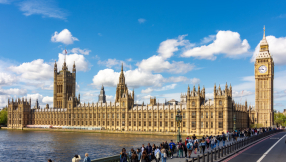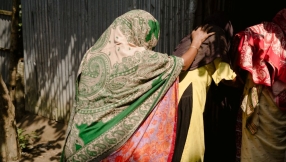Christian Magistrate Fights for Beliefs in Landmark Gay Adoption Case
Andrew McClintock, 63, who has served 18 years on the South Yorkshire bench, will claim he was forced to resign as a member of the family panel after 15 years of service as court managers failed to make reasonable accommodation of his religious and philosophical beliefs.
Mr McClintock, a married father of four, with four grandchildren, is a committed Christian. As an experienced magistrate, he, along with colleagues, frequently hear cases in which they must make orders placing vulnerable children into the care of others.
Since the implementation of the Civil Partnerships Act, same-sex couples now have the legal right to be treated as equal to married couples in their bid to be awarded care of children.
Last year Mr McClintock told court managers that on the basis of his deeply felt Christian convictions, and the legal requirements placed on him to act in the best interests of a child, he did not believe a child's best interests would best be served by being brought up by a same-sex couple.
Mr McClintock advised the court that as a serving magistrate he too was under an obligation to obey the law, including the Civil Partnerships Act, and therefore, he requested court managers allow him leave of cases where he would specifically be asked to act against his conscience, or against his judgement as to what was "in the best interests of the child(ren)". He said he would be happy for other magistrates to sit in such cases and order as they saw fit.
Mr McClintock was told he must preside over cases that involved prospective gay parents. In his tribunal case, Mr McClintock will seek to persuade the court that he was discriminated against, and that the court should have allowed his request under Regulation 10 of the Employment Equality (Religion or Belief) Regulations 2003.
Supporting Mr McClintock in his bid to prove that placing children with same sex couples may not be in their best interests, the court will hear expert evidence from Professor Dean Byrd, president of the Thrasher Research Fund, and clinical professor of medicine, University of Utah School of medicine. Dr Byrd is also vice president and standing psychologist to the National Association for Research and Therapy of Homosexuality (NARTH), the foremost research body in the USA on the subject matter of medical and social study of homosexuality.
Dr Byrd will advise the court of extensive worldwide research, demonstrating the financial and emotional stability that dual-sex, married relationships offer to a child, and of the huge benefits to their social, health and educational development.
He will also advise the Court that children raised in homes with both mothers and fathers navigate the developmental stages of life more easily, are more solid and secure in their self and in their sense of gender identity, perform better at school, have fewer social and emotional problems and become better functioning adults.
He will also tell the Court of widely-respected evidence on the consequences of father or mother absence, and will state that whilst there have been decades of evidence of dual-sex parenting families, studies on same sex parenting are quite limited, and studies of children raised by male couples are virtually non-existent.
Dr Byrd will conclude his evidence by stating his belief that as a sitting British Magistrate, and with the requirements placed on him under the Children's Act, and Article 3 of the United Nations Convention on the Rights of Children (1990), Mr McClintock would have substantial, world-wide evidence to base his view that placing a child into the care of a same-sex couple was "not in the best interest of the child".
He will state that Mr McClintock's views are not, in his expert view, discriminatory, but founded on good academic research.
Mr McClintock said: "In the 15 years I have sat with colleagues on the Family Bench, I can say with total conviction that I have always acted in the very best interests of every child over whom I have been asked to make an order.
"The Civil Partnerships Act was lawfully brought in by this Government and as a magistrate, I must abide by the law. However, I have a conflict of two laws: the law relating to Gay Rights, and legal rights under employment law for my religious convictions to be protected.
"I believe any magistrate who has a conflict of interest, or a conflict of conviction, best serves justice by declaring it, not sitting on that case, and allowing another magistrate to perform the duties.
"I also believe that if any magistrate sitting on the Family Panel, having to make a decision solely in the best interests of a child has any doubts about placing a child into the care of any parents, then he or she must act according to his or her conscience.
"In my case today, I seek to explain that my views about same-sex parenting are not in any way anti-gay, but pro-child. They apply to my deeply held view that, based on all the evidence available to me as a magistrate, there is substantial ground to say the best place for a child to be raised is in a dual-sex relationship, and not a same-sex relationship.
"Acting in the best interest of the child I believe I therefore have no choice than not to make an order to place a child in the care of a same-sex couple.
"I wish to make it clear that I am not campaigning to have the Civil Partnerships Act repealed, or gay rights curtailed. My case is to determine whether a magistrate, with 18 years experience serving the people of Yorkshire, should be allowed the right to be released from occasional cases where he believes to continue to sit would infringe his own conscience, and not help justice to be done.
"That to me, and I believe to most sensible people, would seem a reasonable request to make, and a reasonable and just decision for Court managers to have taken last year."
The Employment Tribunal is expected to last three days.













